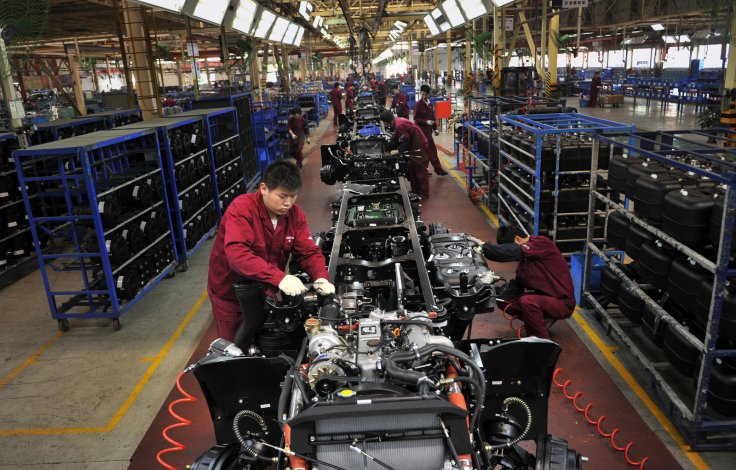
Factory activity shrank in most Asian countries in June as the simmering U.S.-China trade conflict put further strains on the region's manufacturing sector, keeping policymakers under pressure to deploy stronger steps to avert a global recession.
The raft of manufacturing surveys followed the Group of 20 summit in Osaka, Japan, where leaders on Saturday warned of slowing global growth and intensifying geopolitical and trade tensions.
The United States and China agreed at the summit to restart trade talks after President Donald Trump offered concessions including no new tariffs and an easing of restrictions on tech company Huawei, providing some relief to businesses and financial markets.
But analysts doubt the truce will lead to a sustained easing of tensions while lingering uncertainty could dampen corporate spending appetite and global growth.
"It's too early to turn optimistic. The two countries just kicked the can down the road and there's no knowing what could happen next," said Yoshiki Shinke, chief economist at Dai-ichi Life Research Institute in Tokyo.
"Global manufacturing activity hasn't hit bottom yet. U.S. business confidence, particularly that of manufacturers, has been weakening and if this continues, it may hurt economies across the world."
In China, Asia's economic engine, the Caixin/Markit Manufacturing Purchasing Managers' Index (PMI) came in at 49.4, falling short of market expectations and the worst reading since January.
It was the first time in four months that the keenly-watched index has fallen below the neutral 50-mark dividing expansion from contraction on a monthly basis.
Japan also saw manufacturing activity contract in June to hit a three-month low, offering fresh evidence of an economy under the pump as global demand weakens.
Separately, a Bank of Japan (BOJ) survey showed big manufacturers' confidence hit a near three-year low, keeping its central bank under pressure to maintain or even ramp up a massive stimulus programme.
In South Korea, factory activity shrank at the fastest pace in four months in June as the global trade slowdown deepened, prompting companies to cut production and shed more jobs.
Manufacturing activity also fell in Malaysia and Taiwan in a sign the U.S.-China trade conflict's impact on the rest of Asia was broadening.
The U.S-China trade war has hurt business sentiment, threatened to disrupt supply chains and jolted financial markets, drawing warnings by policymakers over the widening fallout on the global economy.
International Monetary Fund Managing Director Christine Lagarde welcomed the resumption of trade talks between the two countries, but warned that more needs to be done to resuscitate a global economy that had already hit a "rough patch."
Heightening worries over global growth have forced some Asian central banks, such as those in Australia, New Zealand and India, to cut interest rates.
While the G20 leaders said they stand ready to take further action to prop up growth, many major economies have little fiscal and monetary space to battle another recession.
Expectations of a U.S. Federal Reserve interest rate cut have put pressure on the European Central Bank and the BOJ to follow suit, despite their dwindling options to arrest stalling growth.
"If the Fed cuts rates, the BOJ and the ECB must do something more powerful to contain currency appreciation," said Sayuri Shirai, a former BOJ policymaker who is currently professor at Japan's Keio University.








